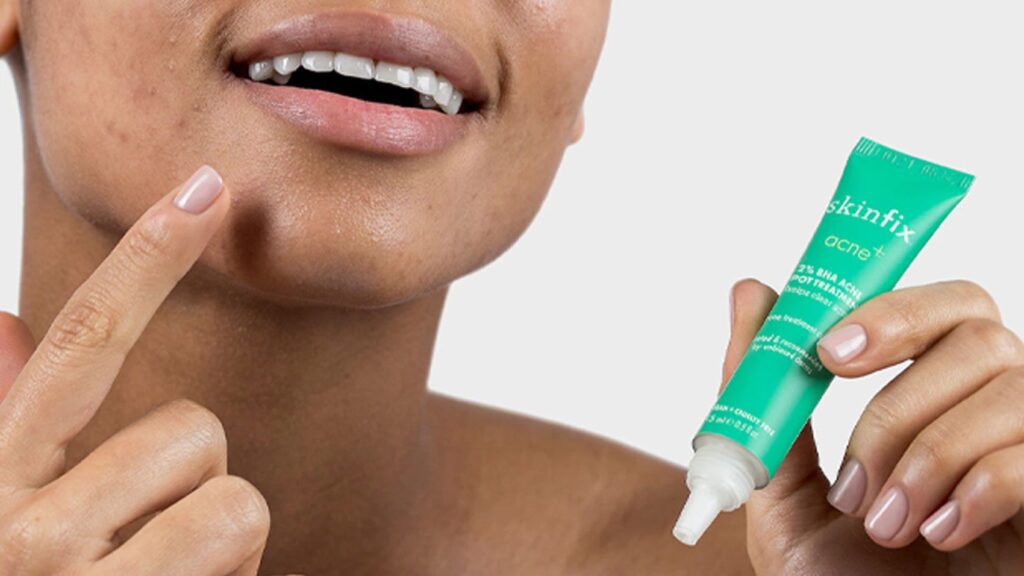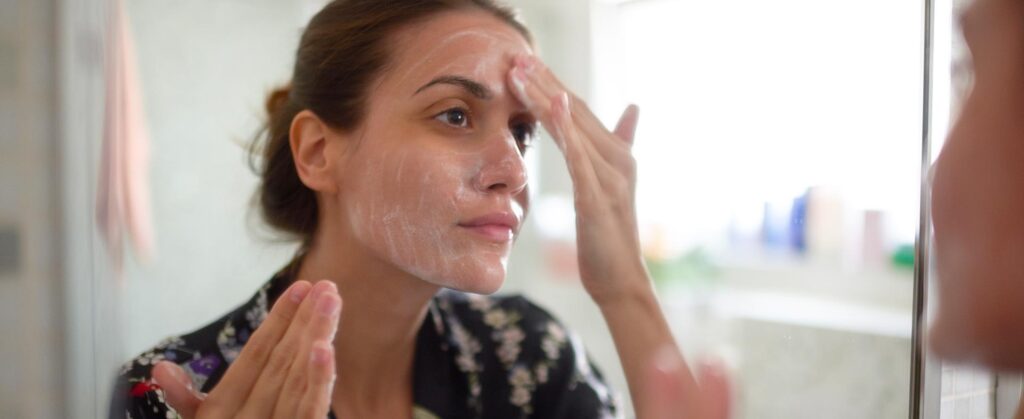Acne treatment is a prevalent dermatological concern, affects individuals worldwide, transcending age, gender, and geographical boundaries. It emerges as a multifaceted challenge, influenced by an array of factors—hormonal fluctuations, genetic predisposition, environmental elements, and lifestyle choices. This skin condition doesn’t merely manifest as occasional breakouts; it often becomes a persistent concern, impacting one’s confidence and overall well-being. Exploring effective methods on how to treat acne is crucial for alleviating its impact and achieving clearer, healthier skin.

Natural Acne treatment : Balancing Your Skin
Hormonal acne is often influenced by hormonal fluctuations, notably during puberty, menstruation, or times of hormonal changes like pregnancy or menopause. Managing hormonal acne naturally involves several approaches that target internal factors.
Balanced Diet: Consuming a balanced diet plays a crucial role in managing hormonal acne. Foods high in antioxidants, such as fruits and vegetables, help combat inflammation and reduce the risk of acne flare-ups.
Hydration: Staying adequately hydrated is essential for overall skin health. Drinking plenty of water helps flush out toxins, maintaining skin hydration and reducing the likelihood of breakouts.

Spearmint Tea: Some studies suggest that spearmint tea might have anti-androgen effects, potentially helping to regulate hormones associated with acne. Consuming spearmint tea regularly might assist in reducing excess sebum production caused by hormonal imbalances.
Stress Management: Stress can exacerbate hormonal acne. Engaging in stress-relieving activities like yoga, meditation, or regular exercise can help regulate stress hormones, consequently reducing the severity of acne breakouts.
Skincare Routine: A gentle skincare routine using non-comedogenic products is crucial. Using products that suit your skin type and don’t clog pores can prevent acne flare-ups.
Consult a Dermatologist: In severe cases, seeking guidance from a dermatologist is advisable. They can offer professional advice, prescribe suitable treatments, or suggest hormonal therapies if necessary.
How to Treat Hormonal Acne at Home: DIY Remedies
Here are more detailed insights into natural remedies for managing hormonal acne:
Balanced Diet: Opt for a diet rich in fruits, vegetables, whole grains, and lean proteins. Foods high in antioxidants like berries, leafy greens, and carrots help fight inflammation and support skin health.
Vitamins and Supplements: Vitamin A plays a role in skin health and can be found in foods like sweet potatoes, carrots, and spinach.
Stress Management: High-stress levels can trigger hormonal imbalances that exacerbate acne. Practices like yoga, meditation, or regular exercise can help manage stress, potentially reducing hormonal fluctuations that contribute to acne.
Skincare Routine: Use gentle skincare products suitable for acne-prone skin. Avoid harsh chemicals that can strip the skin of its natural oils and aggravate acne. Consider non-comedogenic products that won’t clog pores.
Hydration: Drinking an adequate amount of water helps maintain skin hydration and promotes overall skin health. Proper hydration supports the body’s natural detoxification process, potentially aiding in managing acne.
How to Treat Cystic Acne: Targeting Stubborn Breakouts
Cystic acne, characterized by deep, painful pimples, often requires targeted treatment. While seeking professional guidance is recommended, certain over-the-counter treatments can aid in managing cystic acne. Benzoyl peroxide and salicylic acid-based products help unclog pores and reduce inflammation.
How to Treat Baby Acne: Gentle Care for Delicate Skin
Baby acne, a common condition in infants, typically appears as small red or white bumps on the baby’s face. Generally, baby acne resolves on its own, requiring minimal treatment. Gentle cleansing with warm water and mild, fragrance-free baby soap can help.
How to Treat Acne Scars: Fading the Marks of Acne
Acne scars can significantly impact one’s confidence. Various treatments help diminish their appearance. Consider topical retinoids or alpha hydroxy acids to promote skin cell turnover and reduce scarring. Procedures like chemical peels, microdermabrasion, or laser therapy performed by dermatologists are effective in fading acne scars.
Managing acne involves a multifaceted approach tailored to the specific type of acne. Understanding how to treat acne empowers individuals to take control of their skin health. Incorporating natural remedies, adopting gentle home treatments, and seeking professional advice when needed help achieve clearer, healthier skin.
This article provides comprehensive insights and proven solutions for tackling different forms of acne, aiding readers in their quest for clearer, healthier skin.
